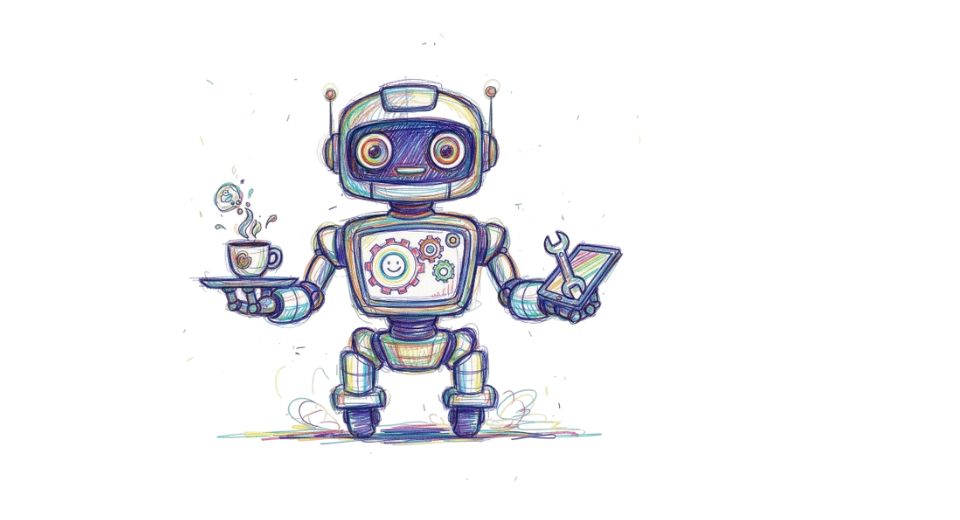
Sep 12, 2025

The Global Smart Service Robots Market Report by Metastat Insight presents an in-depth analysis of technological integration of various industries through smart robotic solutions. At the helm of today's industrial and business environments, smart service robots are no longer seen as theoretical concepts but as working tools that connect efficiency with adaptability. Their existence extends to industries that require ongoing performance, accuracy, and ability to help perform tasks that previously relied heavily on human intervention. The increasing maturity of such systems reflects not just advancement in robotics but also a change in how companies think about service delivery and operational management. One characteristic that defines this market exists in the level of sophistication of machines designed to assist, engage, and perform with minimal human intervention. Whereas previously confined to tightly controlled domains, intelligent service robots have ventured into more dynamic fields, exhibiting robustness and learning ability that revamps classic workflows.
The technologies are now busy operating in settings requiring adaptability, from healthcare institutions needing to handle sensitive responsibilities with care to logistics networks that need seamless consistency. Every interaction brings to light an evolution in which mechanical efficiency converges with intelligent adaptability, with profound implications for industries reliant on precision and reliability. Another addition to this sector comes from developments in software architecture that inform robotic responses. Algorithms programmed for perception, communication, and interaction enable these machines to operate beyond scripted responses. This change allows them to identify variables in environments and adapt, offering a type of decision-making that is closer to human adaptability.
This ability not only enhances the performance of tasks but also builds confidence in their long-term use. As more environments see these machines function with ease, doubt becomes an appreciation for their utility. In medical care, intelligent service robots go beyond performing tasks to impact patient interaction. Machines with sensitive movement and empathetic communication programming improve the provision of care. They enable functions that call for efficiency as well as attention, lightening the load on professionals while, at the same time, elevating interaction standards. The effect does not just appear as saved time but as a redesigning of the delivery of services in which human expertise is supported instead of being substituted.
This illustrates how harmonization in specialized domains redefines support system expectations. In warehousing and logistics, efficiency is still a key indicator, and here smart service robots are still showing change-making potential. By cutting through dense routes, spotting inventory, and enabling order management, these robots lower operational bottlenecks. Their integration has rewritten conventional models by substituting static systems with adaptive networks that respond dynamically to changing demands. The result is not limited to accelerated processing but also to dependability in a setting where mistakes have high stakes. As supply-driven businesses continue to grow, the function of intelligent robotic assistance increases in depth.
The hospitality and service sectors have also accepted this evolution. Intelligent service robots with the capability for direct customer interaction introduce consistency and novelty to the guest experience. From streamlining check-in processes to offering advice throughout facilities, these robots optimize service interactions while supporting efficiency. Their use brings an extra layer of distinction to businesses looking to combine technological advancement with face-to-face service, revolutionizing customer attitudes towards standards of interaction. In these environments, efficiency blends perfectly with brand differentiation. A further aspect of innovation arises from learning institutions where intelligent service robots open up new avenues for experiential education.
Through the use of interactive systems with students, institutions are able to design immersive environments that enhance knowledge of technological integration. This not only promotes familiarity with advanced robotics but also encourages future innovation by acclimating learners to the potential brought about by intelligent machines. Within academic environments, the presence of such robots represents more than ease; it serves as a gateway to developing future generations of creators and thinkers.
This market's strategic importance carries over to security and defense where precision, reliability, and the ability to adapt are of paramount concern. Sensor-based robots that include navigation systems and communication protocols facilitate missions requiring low tolerance to errors. These robots carry out surveillance, reconnaissance, and logistical support with predictability, minimizing risks linked with human participation in high-risk environments. This adoption reflects the plurality of the smart service robot in uses across industries demanding specialized functionality. Underlying every use is the overall significance that organizations now acknowledge robotics as at the core of operational change and not auxiliary improvement. That acknowledgment represents an irreversible turning point in industry operations. While initial uptake typically faced reluctance, current traction is based on faith founded on real results. Intelligent service robots, once viewed through speculative fascination, are now integral as core parts of operational plans within industries.
The Global Smart Service Robots Market Report presented by Metastat Insight concludes with the description of an industry advancing from experimental adoption to practical integration. With adaptive learning, improved communications, and accurate execution, smart service robots redefine service, support, and interaction standards across various industries. With industries broadening their dependence on these technologies, the market not only indicates growth but also more widespread recognition of robotics as a lasting platform for operational enhancement.
Drop us an email at:
Call us on:
+1 214 613 5758
+91 73850 57479